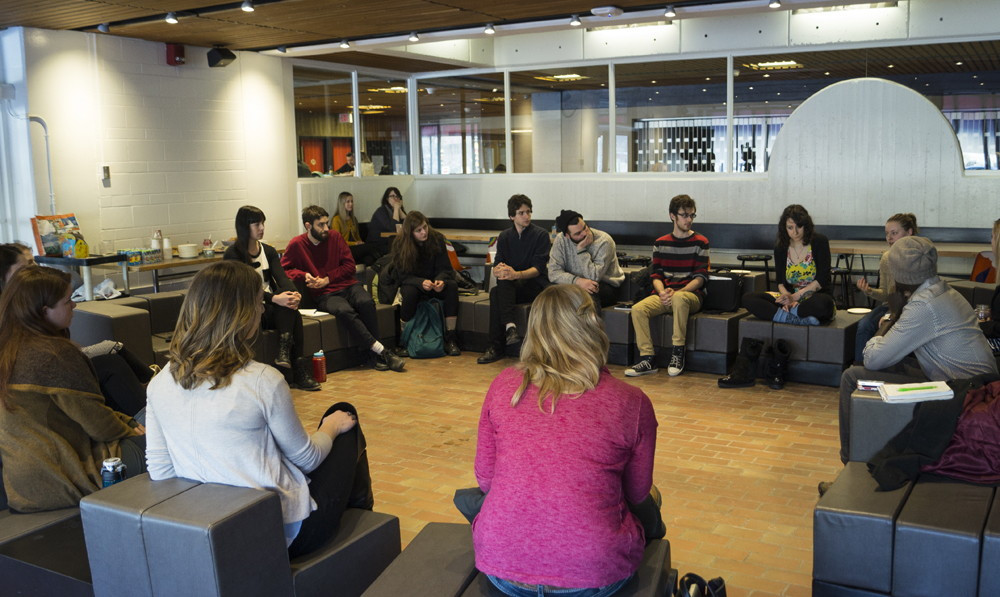Creating a safer campus
UN Safe Cities Global Initiative launches at the U of W with public forum
Students and staff at the University of Winnipeg took the first steps in creating a campus free of sexual violence last week.
On Feb. 11 approximately 25 people gathered in The Hive to talk about the U of W component to the UN Safe Cities Global Initiative.
In December 2013, Winnipeg was the first city in North America to sign on to the UN Women’s initiative to eliminate sexual harassment and sexual violence towards women in public spaces. Since Winnipeg joined the initiative, New York City has also joined, but the U of W remains the only university in the world to be active in the initiative.
“The University of Winnipeg is the first and only institute of higher education globally that has joined Safe Cities,” Kathleen Hunter, senior policy analyst with the Manitoba Status of Women, says. “It highlights the dedication of people at this institution towards creating policies and a climate of safety and security for all women.”
During the lunch hour meeting, students and staff were briefed on what sexual harassment and sexual violence looks like in different settings, and how other communities in countries such as Egypt and Rwanda have taken concrete actions against violence.
“The issues we are talking about, they are relevant on this campus, they are relevant across Canada, but they are also relevant globally. So that’s an important dimension to remember,” Hunter says.
“It’s not that only women here or a small group of women are experiencing these issues. It’s an international concern. It’s a universal reality that violence against women and particularly sexual violence against women is quite commonplace.”
The meeting also served as an initial starting point for developing the interventions and processes that will be most effective on the U of W campus. Because there is no framework that can effectively be taken from one community and transplanted in another, the projects and interventions to be used at the U of W will likely look different from any other city participating in the program.
Participants in the discussion raised concerns about reporting sexual assaults to security when there isn’t always a female identified security member on duty, and the prevalence of anonymous sexual harassment on apps such as Yik Yak.
Allison Reimer, vice-president student service of the University of Winnipeg Students’ Association, says the next step in moving forward with the program is getting students, faculty, administration and staff involved. Before any public awareness campaigns or actions can be taken, input on what sexual harassment and violence looks like on campus has to be solicited.
“The more voices and the more experiences that we get participating in this, the more diverse and inclusive the outcome will be,” Reimer says.
Members of the U of W community are needed to create a committee on campus that will help steer and lead the direction of the initiative. The project is also in need of ad hoc volunteers to participate in projects as they are determined.
“We’ve been bouncing around ideas and talking about what we could do, what would fit in Winnipeg, what we think would be really exciting and engaging for people,” Reimer says, “but we don’t have anything set in stone yet because what we really do need is that high level of student, faculty and staff participation to give that push behind the steering.”
To get involved with the UN Safe Cities Global Initiative on campus contact Allison Reimer at [email protected] or call 204-786-9781.
Published in Volume 69, Number 21 of The Uniter (February 18, 2015)








